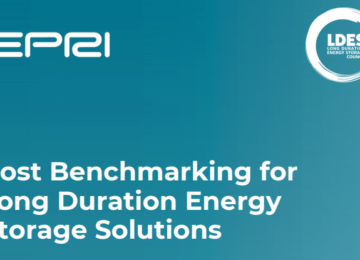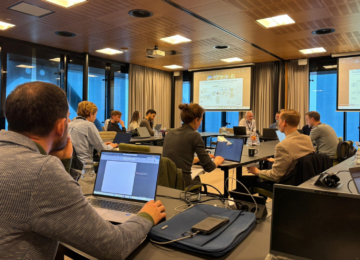Interview with Henk Vermeer (BBB) - storage as key against grid congestion
The Lower House elections are just around the corner, and Energy Storage NL is curious to see how energy storage is included in the party programs of various political parties. In the run-up to the elections, Energy Storage NL is focusing on 'energy storage in politics'. For this campaign we interviewed several members of parliament about what they think the importance of energy storage is in the energy system. This time speaking: Henk Vermeer, Member of Parliament on behalf of the BBB.
What do you think is the main added value of energy storage in the energy system, in the short and long term? And how do you see the role of storage within the energy system itself?
Storage to me is an essential part of the energy system. We now generate much of our energy part-time, while demand is full-time. Storage can help solve that mismatch and also plays a role in balancing the grid and prices, which in turn ensures affordability and security of supply. I think it is outrageous that we turn off wind turbines and solar panels now while we may have to add gas or coal plants later. Storage could actually help prevent that. I believe that storage should be used locally as much as possible: solve problems where they arise. Then you save investments in the network, reduce energy bills, and combine network congestion solutions with affordability.
What role do you see for energy storage in countering grid congestion, and do you think this potential is currently being adequately exploited?
Storage can mean a lot in countering grid congestion, but the potential is not being sufficiently exploited at present. Too much attention is being paid to the demand and production side and not enough to the storage side. Often congestion is caused by export of electricity, not by increasing consumption. In the event of generation congestion, a battery, thermal or hydrogen storage facility should be a standard feature of wind and solar farms, for example. But grid operators now see storage as an extra burden on the grid, instead of alleviating it. I find that incomprehensible.
What do you think is the main reason that the development and integration of storage is still lagging behind in the Netherlands?
The main reason is that there is simply no good business case for storage. The value that storage has - in balancing the grid and preventing congestion - is not currently recognized in the system. Indeed, you pay double transmission costs, which is totally illogical. As a result, storage is financially penalized rather than rewarded. And as long as this remains the case, this development will not get off the ground. The energy transition is now mainly focused on renewable energy production, but the system around it is not growing with it. This means that we do not actually have a real system transition, but separate parts that do not connect well together.
How do you assess the current storage strategy and what do you think should be improved?
I think the current storage strategy is too fragmented and non-committal. There is a lot of talk about it, but little happens in practice. Storage is often still seen as a kind of additional consumer rather than a solution to grid congestion and price fluctuations. As a result, it is not given priority and a clear direction is lacking. In my opinion, what needs to improve is solving the problem where it arises: in other words, using storage for the generation itself, so that you do not burden the network unnecessarily and limit investments in reinforcement. In addition, the incentives in the system must change. As long as storage pays double costs and has no clear value, there will be no healthy business case. The government must ensure clear framework conditions, less bureaucracy around permits and more focus on decentralized solutions. Only then can storage really contribute to security of supply, affordability and stability of the energy system.
What do you think it will take to move from "think it's important" to real priority for energy storage?
To move from "importance" to real priority requires more than fine words. We need to make choices based on the real energy needs of our economy and society, not from the technology that is most incentivized. This requires a review of incentives in the system so that not only production is rewarded, but also reliability, security of supply and grid stability. In addition, there needs to be an action perspective for both industry and citizens, because the energy transition cannot be borne only by large producers. Only by prioritizing technologies that are proven, clean and crucial for a stable energy supply will we make the step from rhetoric to real priority.
What can we expect from the BBB on storage in the run-up to the election?
BBB advocates the elimination of SDE subsidies from 2026 and smart, decentralized energy hubs. Producers must take responsibility for limiting renewable power generation and storage. We invest in research to scale up alternatives, including smart links between generation, storage and consumption, preferably placed close together. Innovation, energy conservation and local initiatives are prioritized so that we realize affordable and supportable solutions.





